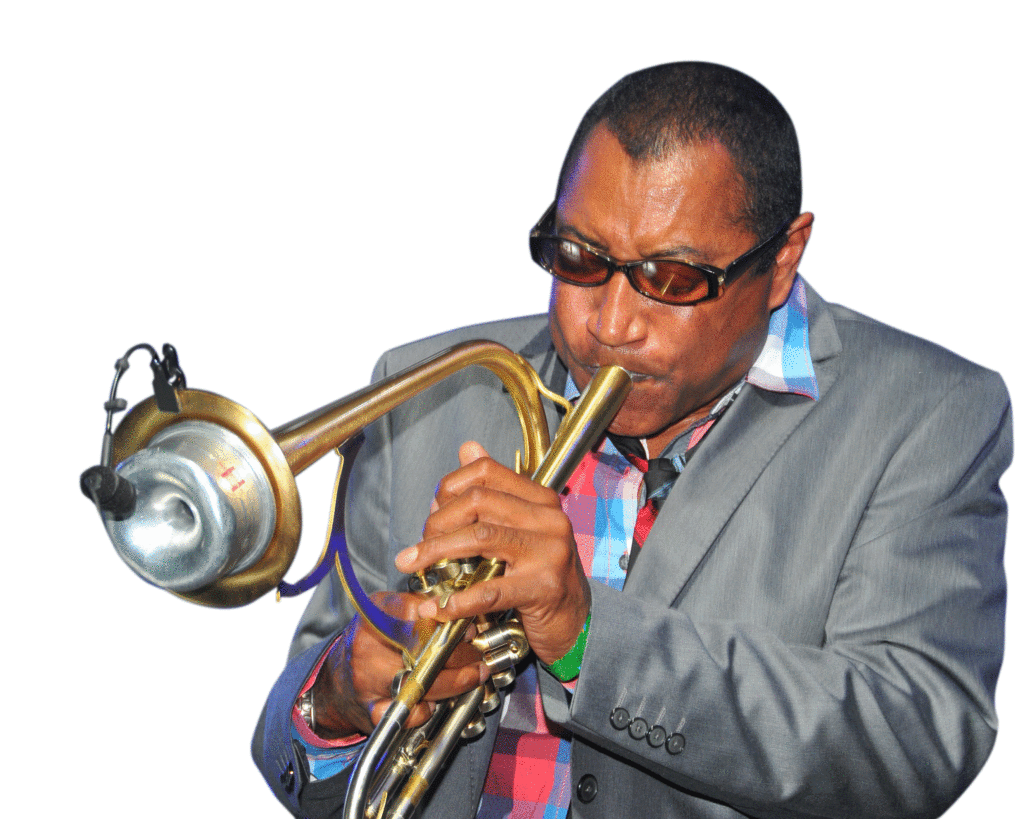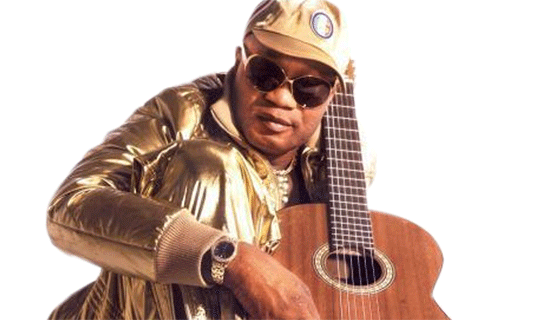
Jazz love: There were days when people who loved jazz were categorised as wannabes. It was a rare genre of music even on local FM stations. Fast forward, though, many people are attending jazz concerts. Joseph Ssemutooke writes about the jazz journey
If you have lived in this country long enough to have known of the Nile Hotel before it became Kampala Serena Hotel, you really should remember the days when jazz concerts –and generally jazz music and its fans – were something most of us did not know about in our dusty city – actually in our banana republic of Uganda. The days when the weekly Afrigo Band gigs, and the Karaoke dos at places like DV8, were the height of music concerts in the country. When an international artiste coming to perform in Uganda could only be a reggae maestro like Lucky Dube, or a Caribbean dancehall star like Shaggy, and when you could hardly hear jazz music playing on local FM radio stations. Perhaps you remember the days while you were a mid-to-late 90s teenager, or do you remember your parents and older siblings going to those gigs and afterwards waxing endlessly about them. Well, at some point not so many years ago, somewhere in the late 2000s, this jazz thing suddenly appeared and quickly bit people like a wildly contagious virus. Suddenly we began hearing mega jazz concerts, local musicians began to refer to themselves as jazz artistes, radio stations took to playing a lot of jazz music, even jazz music collections turned up on the menu of street side CD sellers (never mind that the Jennifer Musisi revolution has made buying CDS on the street a thing of the past). What we are trying to trace here is the story of jazz in this country thus far –principally how and why the jazz thing became the gigantic phenomenon it is today. The era of inconspicuous jazz fans It sounds suspect at first, but Tshaka Mayanja, the co-founder of the annual Jazz Safari, stresses that jazz fans actually existed in Uganda before the current mass fascination with the music genre erupted. Tshaka says from as early as the 1980s, there were jazz fans in the country, only that they were few and inconspicuous. “People like Thomas Ssenkebejje were playing jazz in hotels, and they had fans,” Tshaka says. There were also people who had travelled out of the country and while there, discovered the genre. Fans were there, only that they were few and the genre wasn’t in the public sphere.” Coming closer to the 1990s, Tshaka says a few people were catering for jazz music fans , with the likes of Sanyu FM and later Capital FM hosting the first jazz music shows. “The trio of Alex Ndawula, Raymond Byabazaire and the late Allan ‘the Cantankerous’ Mugisha were playing jazz music on Sanyu, and by the mid 90s, Alex Ndawula was hosting jazz events around town,” Tshaka says. Tshaka is supported by Sean Oseku, a KFM presenter, who gives himself as an example of the few jazz fans who existed in Uganda back in the day. “I remember I had my jazz music on cassettes from the early 2000s onwards,” Oseku says. “Of course it was music that few people listened to or understood, but still I knew a few people who, like me, listened to the genre, people who were so interested in instrument-focused music.” Jazz starts going mainstream Veteran music DJ Moses KAys reckons that jazz actually began becoming a public phenomenon a couple of years after the turn of the century. Kays remembers people, around 2002/2003, starting to show a taste for live band music that focused principally on instruments and not singers, and the bands in the country also starting to deliver exactly that as per the people’s wishes. Kays remembers that as a result, instrumentalists began garnering demand and acclaim and jazz began to grow. He particularly points out saxophonist Isaiah Katumwa, whom he says returned to Uganda for occasional shows and began to get a lot of media attention, thereby getting more people exposed to and falling in love with jazz. Kays also remembers Frank Mbalire returning home and forming the Misty Jazz Band with the likes of Angella Kalule, which band Kays says exposed and won more people to jazz. Tshaka says he left for the UK in 2001, and while there he discovered jazz music, returned home around the mid-2000s to find that jazz was catching up, which encouraged him to team up with fellow jazz connoisseur and activist Elijah Kitaka to also do something in promotion. “Elijah was already presenting a jazz music show on Radio One, and I teamed up with him to organise monthly jazz gatherings at Ange Noir,” Tshaka recalls. “At the meetings we would also take details to compile a database of fans, and shortly we had 4,000 members. It was going massive.” The Jazz Safari revolution It is those monthly jazz fans’ meetings at Ange Noir that transformed into the annual Jazz Safari festival – which festival has unquestionably been the foremost factor in making jazz a mass phenomenon in Uganda over the last about seven years. “The number of fans attending the monthly jazz evenings was staggering, and we had noticed that there were many other jazz fans who had been nurtured elsewhere, such as at the Misty Jazz Band dos. So in 2008 we (myself and Elijah) decided to actually start an annual fete to bring together jazz connoisseurs in the country.” The first event was held in the parking yard of Ange Noir just before Christmas, before the organisers took it to Kigali the following year and to Nairobi in 2010. Then in 2011 it returned to Kampala to become an annual fixture on the local music calendar. Self-proclaimed jazz fanatic and lawyer, Ivan Mutaawe, says the Jazz Safari indeed deserves to be called the revolution that turned around the genre and made it the mass phenomenon it is today. “Personally, I did not really know about jazz until I attended the 2011 Jazz Safari, and ever since, I am now an all-jazz person when it comes to music,” Mutaawe says. “And I know so many other people who first heard of and fell in love with jazz because of the Jazz Safari,” he adds, before naming his wife and four other lawyers as fans who were attracted by the Jazz Safari events. And tonight jazz fans get to enjoy jazz icon, Hugh Masekela and Isaiah Katumwa. If Masekela’s name doesn’t ring a bell, you are a jazz wannabe
So Many Jazz Fans and Artistes Today It is as clear as a candle in the dark, that today there are so many jazz fans in Uganda, that there are so many musicians who refer to themselves as jazz artistes, so many jazz bands, and a surfeit of jazz events at different places in the country. “It pleases me and Elijah that jazz has become rather mainstream today, and that the safari has unquestionably played a part in making that happen, because that was one of our principal aims when we started out,” Tshaka says. “When we see that Kampala Music School now has a jazz section, that we have a radio station dedicated solely to jazz (Jazz FM), we are really proud.” One major accusation that the local Jazz scene continues to face from critics, though, is that so many of the people who claim to be jazz fans do not really understand the genre. In fact, that many of the people who identify as jazz fans only claim so to appear classy because jazz has somehow become a mark of class. Ivan Mutaawe says although it is true that some people go to big jazz events just to appear classy, there are also so many true jazz fans in the country. “In any case, there is no harm in people who are not fans turning up if they can pay to be there. Through exposure one easily becomes a fan.” Tshaka says there is need to realise that actually so many Ugandans today really understand jazz music, and that the genre is no longer as esoteric as it used to be. “The world has become more interactive and Ugandans have easily picked up on the genre. Jazz is now played at almost all weddings, in churches, on radio, it is even hard to check a person’s music collection and there is nothing like jazz altogether. Jazz has also sort of fused with other genres the world over, so it is no longer that esoteric genre which only travelled people understand and which ordinary people can’t relate to.”

























































